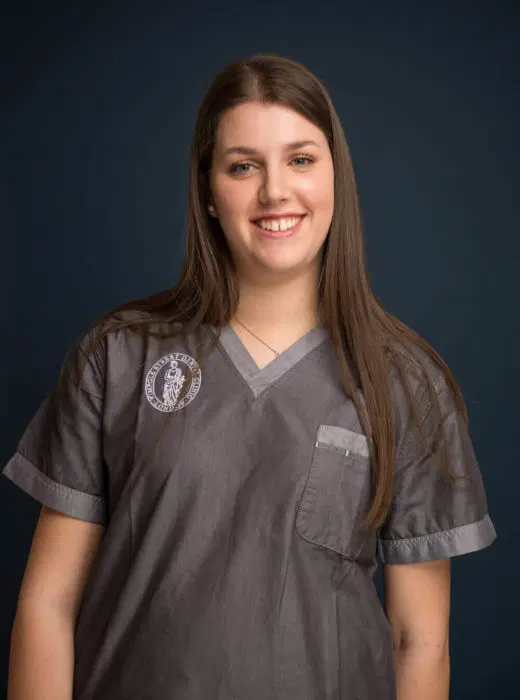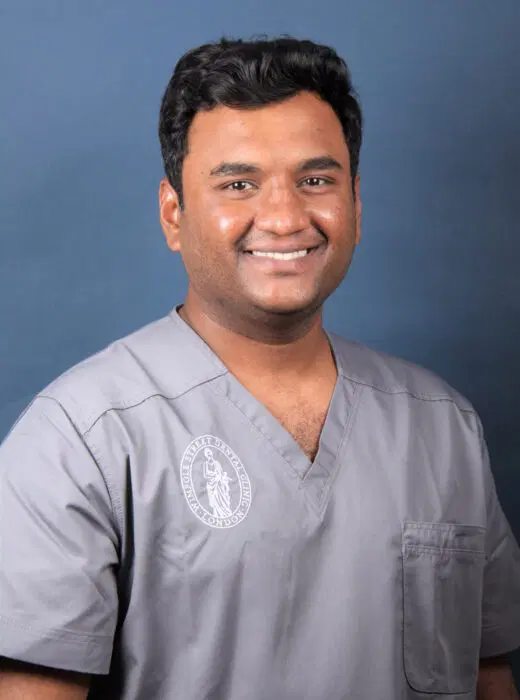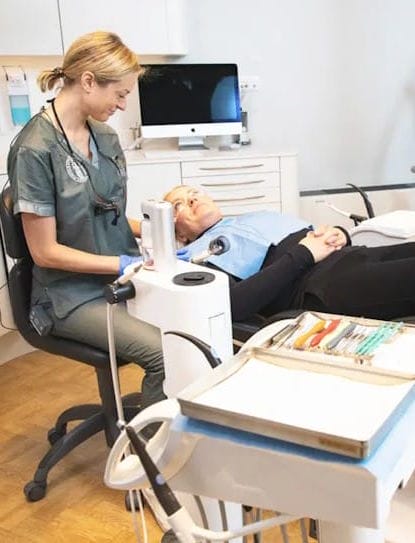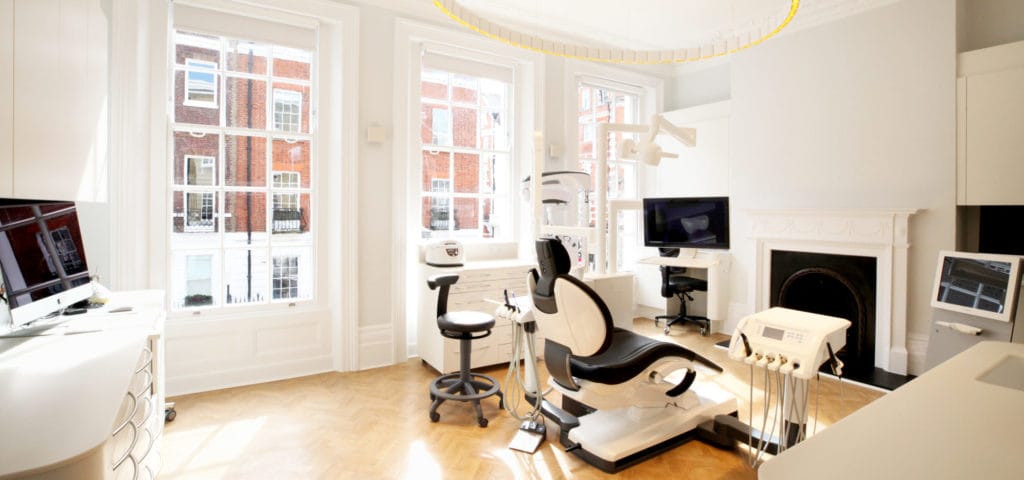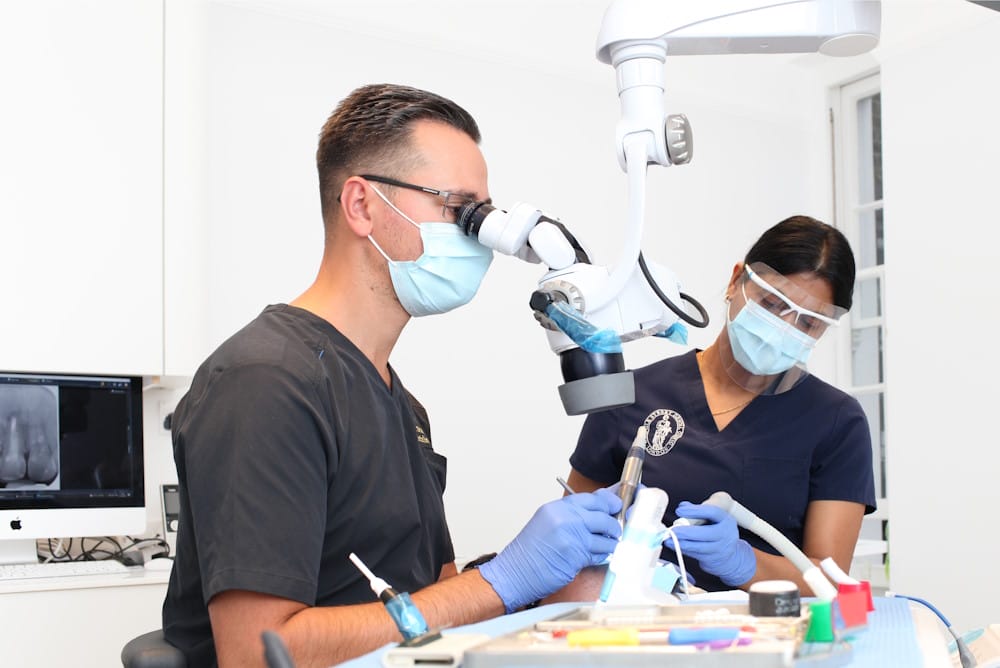Dentures in London

Treatment
4+ hours

Price
From £2,500

Team Experience
40+ years

Recovery Time
None

Google Rating
★★★★★ (4.9)
Examples of our work
Dentures are a reliable solution for restoring both function and aesthetics for those missing multiple teeth. At Wimpole Street Dental Clinic, our dentures case studies illustrate how we tailor each set for a natural look, comfort, and optimal fit. From partial to full dentures, these cases reveal the journey to a restored smile, enabling patients to speak, eat, and smile confidently again after tooth loss with results that blend seamlessly with their natural appearance.
Full or partial removable dentures (false teeth) are dental prosthetics made from acrylic plastic, nylon or metal materials and are designed to replace one or more missing natural teeth. This prosthodontic treatment is less invasive than a surgical option, such as a dental implant or the use of a dental bridge.
Full (or complete) dentures need the support of healthy gums as they are secured to them via a precise fit plus dental sealant (fixative adhesive) can be used if needed. Partial dentures are a smaller version of full dentures designed to be attached via clips to your neighbouring healthy teeth to close the gap created by the missing teeth.
Benefits of dentures
Dentures do more than replace missing teeth caused by trauma or tooth decay. They:
- Restore the ability to eat, speak and smile naturally
- Support teeth and gums, preventing facial sagging
- Provide a removable and less invasive option compared to dental implants or bridges
- Offer flexibility, with different types such as conventional dentures, acrylic dentures, flexible dentures and implant-supported dentures
- Can be adapted as your oral health changes, with final dentures fitted once gums have fully healed after extraction
Modern dentures are far more comfortable and natural-looking than ever before, giving patients a reliable, discreet solution.
Types of dentures
We provide several types of dentures at our central London dental practice:
- Complete dentures – replace all upper or lower teeth.
- Partial dentures – secure to other teeth using discreet clips.
- Immediate dentures – fitted the same day after tooth removal, useful for patients needing a fast solution.
- Implant-supported dentures – fixed to two or more implants for extra stability.
- Flexible dentures – made from thinner materials for increased comfort.
- Acrylic dentures – durable, cost-effective and widely used.
Your dentist will recommend the best choice based on your smile, lifestyle and oral health.
What happens during treatment for complete dentures?
The process begins with a consultation and dental appointment to check your oral health and discuss your preferences.
- Examination – we assess your gums, jaw and other teeth.
- Impressions – precise moulds of your mouth are taken to ensure accuracy.
- Trial stage – temporary models are tested to refine fit, bite and aesthetics.
- Final dentures – once you are happy, your bespoke set is fitted.
- Aftercare – your dentist for advice will explain how to clean and maintain them.
For dentures on implants, a 3D X-ray is used to plan placement before the surgical procedure.
Adjusting to dentures
It may take a short while to get used to wearing dentures. Some patients experience mild soreness or changes in speech at first, but this soon settles. Our team is here to help with adjustments if needed. Removing dentures at night allows your mouth and saliva flow to recover, reducing problems such as sore gums.
How to clean dentures
Caring for dentures is simple but important:
- Brush daily with a soft toothbrush and fluoride toothpaste to keep your teeth and gums healthy.
- Wash dentures with soft soap and lukewarm water – avoid harsh abrasives.
- Use a denture cleaning solution to soak and refresh them, but avoid leaving them in for too long.
- Rinse after eating to prevent food build-up.
- Remove adhesive carefully if using denture fixative.
Good cleaning routines help people with dentures enjoy long-lasting results and fresh breath.
Alternatives to dentures
While modern dentures remain a reliable and popular solution, some patients prefer to explore other types of tooth replacement. One option is dental implants, which are fixed directly into the jawbone and provide a replacement that feels and functions very close to natural teeth. Implants can support a single crown, a bridge or even a full arch of teeth, offering excellent stability and long-term results. Another alternative is a traditional dental bridge, which uses the strength of your other teeth to support one or more artificial replacements. For patients who only need to restore minor gaps or improve the appearance of worn teeth, treatments such as crowns or composite bonding may also be considered.
At Wimpole Street Dental Clinic, we will always explain the benefits of dentures alongside these alternatives, giving you a clear understanding of the different types of treatment available, so you can make an informed decision about the best option for your smile.
Meet your award-winning Dentures dentist and team…
With over 75 years of combined dentistry experience and more than 10,000 treatments performed, our specialist team at Wimpole Street Dental Clinic offers unrivalled expertise in restorative care. Recognised as leaders in the dental industry, we regularly teach, lecture, and publish research internationally, ensuring our patients benefit from the latest knowledge and techniques. Every set of dentures is crafted in our own in-house laboratory by a highly experienced dental technician, guaranteeing precision, comfort, and a natural result.
Who is suitable for dentures?
Dentures are an option if you have lost many teeth due to decay, accident or gum disease. They are also suitable if you need to replace all upper dentures or lower dentures.
You may be recommended dentures if you:
Have healthy gums and bone to support a snug fit
Want a non-surgical alternative to implants
Require an affordable and removable option
Need temporary teeth while waiting for a more permanent solution
Dentures are not limited to older patients. Younger patients sometimes need them after accidents or sports injuries. In fact, our dentists may recommend dentures over implants for athletes in contact sports, reducing the risk of repeat treatments if a tooth is damaged again.



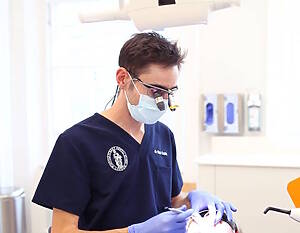


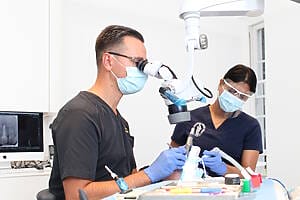



Looking for the best Dentures in London?
Here are just some of the benefits you can expect to receive at Wimpole Street Dental Clinic when you visit us for dentures dental treatment:
- Safe and established procedures due to over 1,000 successfully placed implants per year.
- Latest technology in diagnostics and therapy.
- Clinically and scientifically proven surgical methods by our dentists with decades of combined general dentistry and cosmetic dentistry experience.
- Offer a wide range of denture options including complete dentures, partial dentures and temporary dentures.
- High-quality implant systems.
- We only use dental implants from leading dental implant companies because they have to last 30 years or more
- Modern operating rooms.
- We have the ability to provide immediate dentures that can be fitted on the same day.
- Comfortable recovery rooms.
- Established high-end hygiene protocols.
- Convenient central London location accessible by bus, car or underground.
Dentures FAQs
Immediate dentures, sometimes called same-day dentures, are fitted straight after tooth removal, so you don’t have to wait weeks for your new smile. They can be especially useful if you feel self-conscious about gaps or have an important event coming up. While convenient, immediate dentures are a temporary solution — they may not fit as comfortably as your final dentures, which are made once your gums have fully healed.
Partial dentures are recommended when you still have other teeth in good condition. At your dental appointment, we carry out checks and take precise impressions to design a bespoke plate that matches your gums and smile. The denture is secured with small clips that attach to healthy teeth, making it easy to insert and remove. Your dentist for advice will also explain how to care for your dentures at home.
Complete dentures replace all the teeth in your upper or lower jaw. After an assessment and impressions, your dentures are made to replicate your natural gum shade and bite. They are kept in place by their precise fit, and extra support can be added with a denture fixative. Once fitted, you’ll be given clear guidance on cleaning and long-term care.
Implant-supported dentures combine the stability of dental implants with the flexibility of dentures. Following scans and planning, two to four implants are placed in the jaw, and the denture is secured on top. The result is a much firmer hold than conventional dentures, with less need for adhesive. These dentures may also be reinforced with a metal or high-tech framework.
It is usually best to remove dentures at night. This gives your mouth and saliva flow time to rest, reduces the risk of sore gums, and allows for proper washing and care. Your dentist will advise whether occasional overnight use is suitable for you.
It’s normal to feel some discomfort at first. Within a few weeks, most patients adapt and can eat and speak comfortably. Careful fitting helps minimise problems, and we are always available to adjust your dentures if needed.
Yes — but receding gums may not always provide enough support for a secure fit. In these cases, dentures on implants can offer better stability and comfort.
Most dentures are made from acrylic dentures (plastic), nylon, or metal. These materials are durable, lightweight, and allow us to create a natural-looking smile.
Yes. We recommend starting with soft foods in small pieces, chewing slowly as you adjust. With practice, you’ll be able to enjoy most foods again, though it’s wise to avoid very hard, sticky or sharp foods that could damage your dentures.
Flexible dentures are made from a thin thermoplastic such as nylon. They adapt more closely to the shape of your mouth and feel softer than conventional dentures, which some patients find more comfortable.
Dentures are designed to look like natural teeth and gums. They are custom-made to match your gum colouring and bite, helping you regain your original smile as closely as possible.
Yes. Many patients move on to implants later. This treatment is known as implant-supported dentures and is available at our London dental practice. Your dentist will check your suitability and explain the full process.
Most dentures stay secure thanks to their precise fit. For extra reassurance, some patients use a denture fixative. Implant-supported dentures, meanwhile, are held firmly by the implants themselves.
Content Updated
Written by: Prof Dr Christian Mehl
Medically reviewed by: Dr Raul Costa
New page design
Written by: Prof Dr Christian Mehl
Medically reviewed by: Dr Raul Costa
Original content created
Written by: Prof Dr Christian Mehl
Medically reviewed by: Dr Raul Costa
Wimpole St Dental Clinic has strict sourcing guidelines and relies on peer-reviewed studies, academic research institutions, and medical associations. We avoid using tertiary references. You can learn more about how we ensure our content is accurate and current by reading our editorial policy.
- Stober T, Bermejo JL, Rues S, Rammelsberg P. Wear of resin denture teeth in partial removable dental prostheses. J Prosthodont Res. 2020 Jan;64(1):85-89. doi: 10.1016/j.jpor.2019.04.004. Epub 2019 May 10. PMID: 31085073.
- Lechner SK, Roessler D. Strategies for complete denture success: beyond technical excellence. Compend Contin Educ Dent. 2001 Jul;22(7):553-9; quiz 560. PMID: 11494615.
- Renne W, Revell G, Teich S. The digital denture replication method (DRM): a simplified method to fabricate a complete removable prosthesis. Quintessence Int. 2020;51(10):838-843. doi: 10.3290/j.qi.a45267. PMID: 32954391.
- Kossioni AE. Prevalence and Factors Associated with the Use of Denture Adhesives by Older Complete Denture Wearers. Eur J Prosthodont Restor Dent. 2018 Nov 29;26(4):197-201. doi: 10.1922/EJPRD_01808Kossioni05. PMID: 30398316.






